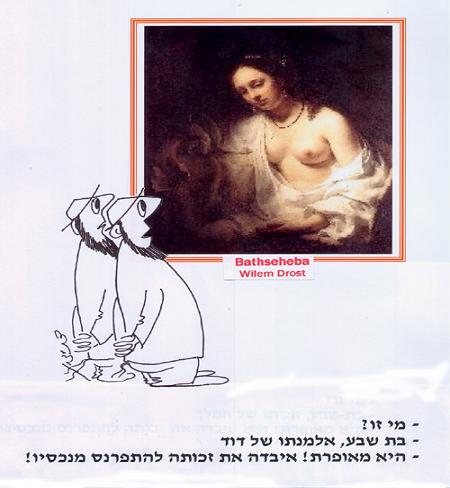
The early sages (the Tanaaim) gave a married woman a basic financial anchor upon which to rest when she is widowed, and this anchor is entrenched in the ketubah. One of a woman’s rights as a widow is the right to live in her late husband’s home and be supported from his assets. In the ketubah (the marriage contract) the husband promises his wife “You shall live in my house and be supported from my assets while you are a widow.” From this wording one of the scholars, Rav Yossef, learned that if the man has no house but only a shed, the widow has no right to live in the building and must find her own place to live or move back with her parents, but she retains the right to be supported from her late husband’s assets. Another scholar, Mar son of Rav Ashi, learned that if the late husband had only a shed and no house the widow is neither entitled to live in the building nor to be supported by his assets. It is also related in the name of the sage Rav Chisda that if a widow had sexual relations with another man she loses her right to be supported from her late husband’s assets. A different sage ruled that if she began to put on make up and jewelry she loses her right to be supported from her late husband’s assets. The scholars concluded from his words that if she began to put on make up she loses her right to be supported from her late husband’s assets, but if she had sexual relations she does not lose this right. The scholars asked: What is the difference between one who puts on make up and so loses her living and one who has sexual relations and does not lose her living? Answer: Make up and jewelry is put on because a woman is expressing her wish to become close to other men and not remain a loyal widow to her late husband. But one who has sexual relations with another man is acting due to sexual impulses and not necessarily from a considered desire to wed another man. In the words of the sages, “her desires forced her.” In practice the sages rejected the above and ruled that if the widow demands the amount set for her in the marriage contract she loses her right to live in her late husband’s house and be supported from his assets, claiming that this shows her desire to be done with her ties to her late husband.
(Babylonian Talmud, Tractate Ketubot 54a)
